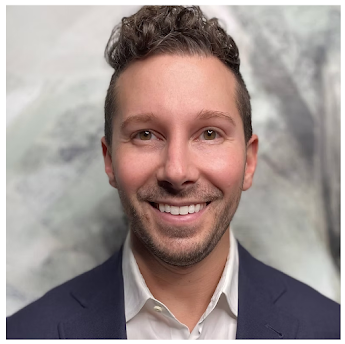Burnout, Boundaries, and the Courage to Change: A Conversation with David Rust
On this episode of The Life Unscripted Podcast with Rosabel, I had the privilege of talking with David Rust, a licensed clinical social worker, certified case manager, and founder of Rust Wellness Group. With over 15 years of experience in mental health, David brings a deep well of professional insight, but perhaps even more powerful is his willingness to share his own lived experiences with burnout, emotional fatigue, and healing.
From the start, David reminded us that stress and burnout are different. While stress is temporary and often tied to specific events, burnout is chronic, insidious, and deeply rooted in environments with blurred boundaries and relentless expectations.
“Burnout isn’t a badge of honor—it’s a warning sign,” David explained. And in that one sentence, he shattered the illusion that overworking is a symbol of success.
The Myth of the Hustle
David opened up about working in organ transplant evaluations, a field filled with emotional weight and intensity. Eventually, the emotional toll of helping people in crisis eroded his passion. He described the moment he realized that continuing at this pace wasn’t sustainable.
And even when he transitioned into entrepreneurship by starting his own practice, burnout followed. Why? As David said, "Social work school doesn’t teach you how to be a business owner." He found himself working 70-hour weeks, managing clients, onboarding therapists, handling referrals, and losing himself in the process.
Why Boundaries Matter More Than Ever
So many of us have been conditioned to put others first, to hustle for approval, or to attach our worth to how much we produce. But David urged listeners to redefine boundaries—not as walls to keep others out, but as commitments we make to protect our well-being.
“A boundary isn’t a rule for other people. It’s how you take care of yourself,” he said.
He shared practical strategies for building boundaries in our daily lives:
-
Designate separate spaces for work and rest (especially when working from home)
-
Use phone features like “Do Not Disturb” to reduce tech burnout
-
Schedule meals, breaks, and morning routines that ground you
-
Before saying “yes,” ask yourself: Will this nourish or drain me?
Healing Isn’t Passive—It’s Intentional
One of the most powerful takeaways from this episode was that healing from burnout isn’t something a vacation can fix. Burnout requires structural changes—emotional, behavioral, and sometimes environmental. A week off won’t reset a nervous system that’s been chronically overwhelmed for months. But small, intentional actions each day can.
David also reminded us that therapy isn’t about someone else changing you—it’s about empowering you to make changes that align with your values and truth. “You’re the bus driver,” he said. “I’m just the passenger helping you navigate.”
Let’s Normalize the Need for Support
Whether you're a healthcare professional, a caregiver, or simply trying to keep it all together, this conversation is for you. You don’t have to wait until you crash to make a change. Listening to your body and your intuition isn’t weakness—it’s wisdom.
🎧 Tune In, Reflect, and Reclaim Your Energy
If this conversation resonated with you, here’s how to take the next step:
🔗 Connect with David Rust
-
Website: rustwellnessgroup.com
-
Instagram & Facebook: @rustwellnessgroup
-
Reach out for referrals or support via his website
🌐 Connect with Me
-
Website: rosabelunscripted.com
-
Instagram: @rosabelunscripted
-
Facebook: RosabelZunscripted
-
Subscribe to the podcast: The Life Unscripted Podcast on YouTube
If you’re stuck in survival mode, overwhelmed, or ready for a reset, remember: you are not alone. You don’t need to carry it all. Start by taking a breath, setting a boundary, and making one small choice today that your future self will thank you for.


No comments:
Post a Comment